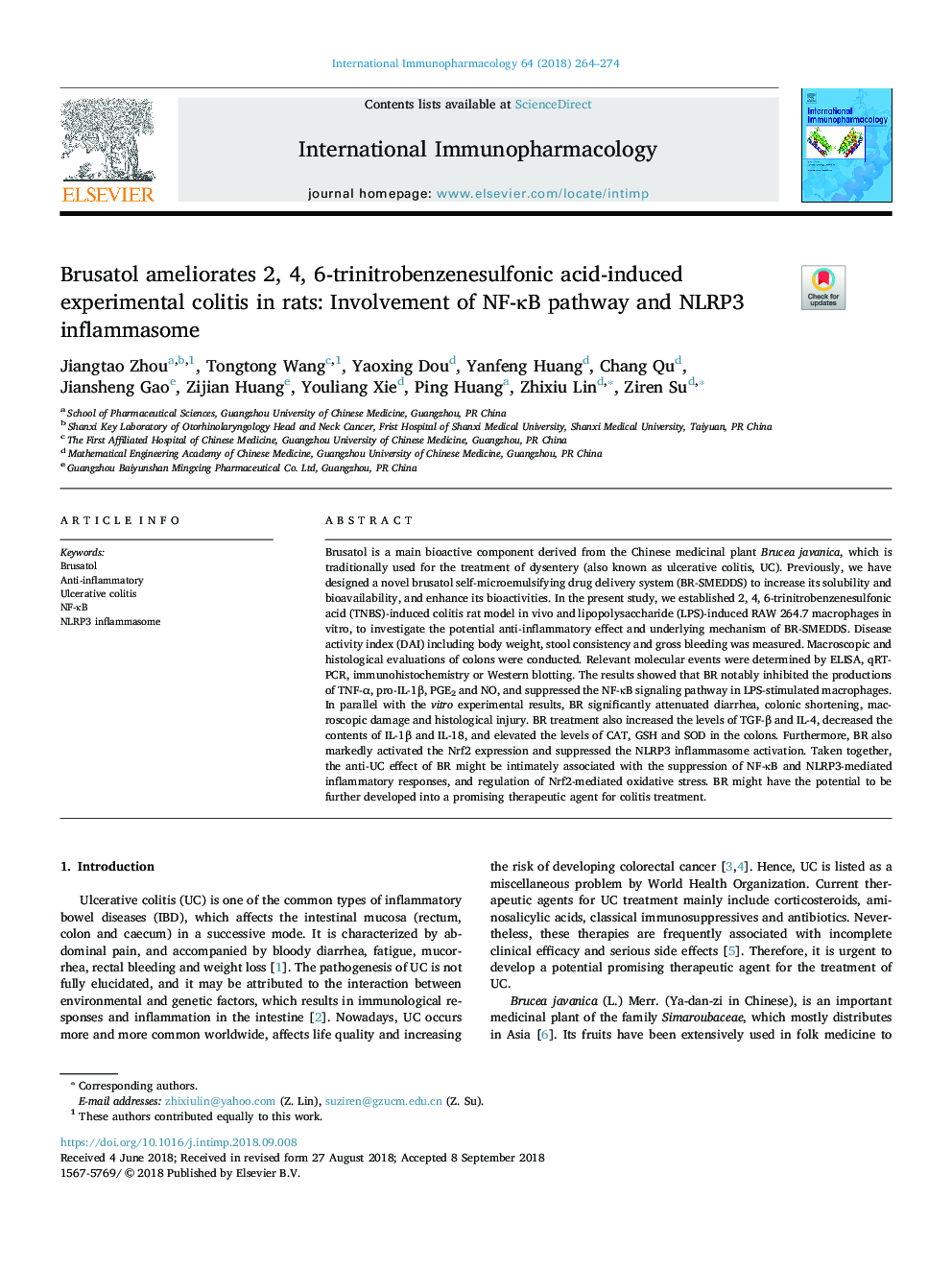| Article ID | Journal | Published Year | Pages | File Type |
|---|---|---|---|---|
| 10137562 | International Immunopharmacology | 2018 | 11 Pages |
Abstract
Brusatol is a main bioactive component derived from the Chinese medicinal plant Brucea javanica, which is traditionally used for the treatment of dysentery (also known as ulcerative colitis, UC). Previously, we have designed a novel brusatol self-microemulsifying drug delivery system (BR-SMEDDS) to increase its solubility and bioavailability, and enhance its bioactivities. In the present study, we established 2, 4, 6-trinitrobenzenesulfonic acid (TNBS)-induced colitis rat model in vivo and lipopolysaccharide (LPS)-induced RAW 264.7 macrophages in vitro, to investigate the potential anti-inflammatory effect and underlying mechanism of BR-SMEDDS. Disease activity index (DAI) including body weight, stool consistency and gross bleeding was measured. Macroscopic and histological evaluations of colons were conducted. Relevant molecular events were determined by ELISA, qRT-PCR, immunohistochemistry or Western blotting. The results showed that BR notably inhibited the productions of TNF-α, pro-IL-1β, PGE2 and NO, and suppressed the NF-κB signaling pathway in LPS-stimulated macrophages. In parallel with the vitro experimental results, BR significantly attenuated diarrhea, colonic shortening, macroscopic damage and histological injury. BR treatment also increased the levels of TGF-β and IL-4, decreased the contents of IL-1β and IL-18, and elevated the levels of CAT, GSH and SOD in the colons. Furthermore, BR also markedly activated the Nrf2 expression and suppressed the NLRP3 inflammasome activation. Taken together, the anti-UC effect of BR might be intimately associated with the suppression of NF-κB and NLRP3-mediated inflammatory responses, and regulation of Nrf2-mediated oxidative stress. BR might have the potential to be further developed into a promising therapeutic agent for colitis treatment.
Related Topics
Life Sciences
Immunology and Microbiology
Immunology
Authors
Jiangtao Zhou, Tongtong Wang, Yaoxing Dou, Yanfeng Huang, Chang Qu, Jiansheng Gao, Zijian Huang, Youliang Xie, Ping Huang, Zhixiu Lin, Ziren Su,
